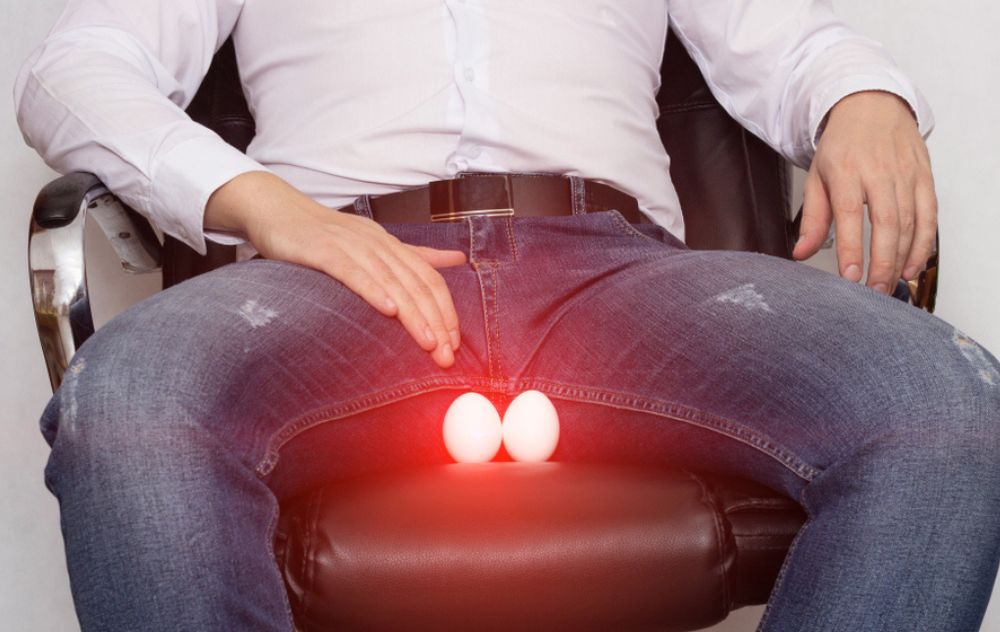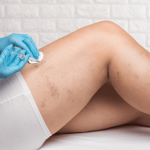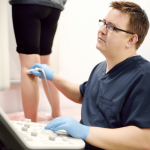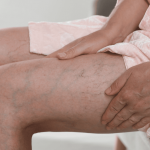
If you’ve been diagnosed with a varicocele, you’re not alone. This condition affects about 15% of adult men and is one of the most common causes of male infertility. Understandably, one of the first questions men have after a diagnosis is: Does varicocele go away on its own?
In short, no, a varicocele typically does not go away without medical intervention. But to understand why, it helps to first know what a varicocele is and how it’s closely related to another vein condition you may have heard of: varicose veins.
What Is a Varicocele?
A varicocele is a cluster of enlarged veins in the scrotum, similar in nature to varicose veins that occur in the legs. Both conditions result from damaged or malfunctioning valves in the veins that cause blood to pool instead of circulating efficiently.
Just like varicose veins, varicoceles develop over time and are often found in people who spend long periods standing or straining. While varicose veins are more common in women, varicoceles exclusively affect men and tend to appear during puberty or early adulthood.
Most varicoceles occur on the left side of the scrotum, due to anatomical reasons involving how blood drains from that side of the body.
Does Varicocele Go Away Without Treatment?
The straightforward answer: No, a varicocele will not go away by itself.
Because the underlying issue involves structural vein damage, once a varicocele has formed, it is considered a chronic condition. The veins will remain enlarged unless medical treatment is performed to correct the faulty blood flow.
That said, some varicoceles are asymptomatic, meaning they don’t cause noticeable symptoms or fertility issues. In these cases, your doctor may recommend watchful waiting—monitoring the condition rather than treating it immediately. But for those experiencing pain, swelling, or infertility, treatment is strongly recommended.
What Are the Symptoms of Varicocele?
Many men with varicoceles don’t experience symptoms. However, others may notice:
-
A dull, aching pain in the scrotum that worsens after physical activity
-
A visible or palpable mass in the scrotum, often described as feeling like a “bag of worms”
-
Swelling or asymmetry in the testicles
-
Decreased sperm quality, which may means varicocele may lead to fertility problems
-
In some cases, testicular atrophy (shrinking of the testicle)
The symptoms are often more noticeable after standing for long periods or during warm weather, similar to how varicose vein symptoms worsen under similar conditions.
Varicocele vs. Varicose Veins: What’s the Connection?
Though they occur in different parts of the body, varicoceles and varicose veins share the same underlying cause: faulty vein valves.
In healthy veins, valves act as one-way doors that keep blood flowing toward the heart. When those valves weaken or fail, blood flows backward and pools, leading to pressure and vein enlargement. This is why both varicose veins in the legs and varicoceles in the scrotum bulge, cause discomfort, and don’t resolve without treatment.
Men with varicose veins may be at higher risk for varicocele, especially if there’s a genetic predisposition to weakened vein walls.
Can Varicocele Symptoms Improve Naturally?
While a varicocele itself won’t go away on its own, certain lifestyle adjustments may help relieve discomfort:
-
Wearing supportive underwear or athletic compression garments
-
Applying cold packs to the scrotum to reduce swelling
-
Avoiding heavy lifting or straining during bowel movements
-
Taking anti-inflammatory medications like ibuprofen
These self-care methods can manage symptoms, but they don’t correct the root cause. Eventually, many patients find that symptoms return or worsen, and medical treatment becomes necessary.
Treatment Options: How to Get Rid of a Varicocele
If your varicocele is causing pain or fertility concerns, you don’t have to suffer in silence. Several effective treatment options are available:
1. Varicocelectomy (Surgical Removal)
A urologist surgically ties off the affected veins to redirect blood flow to healthy ones. This procedure typically requires general anesthesia and a recovery period of a few weeks.
2. Varicocele Embolization (Minimally Invasive Procedure)
This non-surgical option involves guiding a catheter through a vein in the groin or neck and inserting small coils or a sclerosing agent to block off the faulty vein. Blood is rerouted to healthy veins, relieving pressure.
Embolization is often preferred due to faster recovery, minimal scarring, and high success rates—similar to how vein ablation or embolization is used to treat varicose veins in the legs.
Why Treatment Matters
Untreated varicoceles may lead to progressive testicular damage, increased pain, or infertility. For couples trying to conceive, treating a varicocele may significantly improve sperm quality and increase the chances of natural conception.
Similarly, untreated varicose veins in the legs can lead to skin ulcers, blood clots, and chronic leg pain. Both conditions are medical concerns that deserve attention—not just cosmetic or comfort-related issues.
So, Will Varicocele Go Away on Its Own?
To recap: Does varicocele go away on its own? No, but with the right medical treatment, it can be effectively managed or eliminated.
Whether you’re dealing with scrotal discomfort, fertility challenges, or concerns about your vascular health in general, it’s important not to ignore the signs. Just like varicose veins, varicoceles are treatable, and the sooner you address them, the better your outcome.





